Plants need vitamins just like humans do. They require essential nutrients to grow, bloom, and be strong. Nutrient deficiency will cause plants to take a long to mature in fruiting, grow, and most likely die. Are you searching for available vitamin supplements? Continue reading this post for details.
Plants need nitrogen, phosphorus, potassium, magnesium, calcium, and sulfur to grow, which is hard to maintain since plants absorb them in large quantities.
Some other nutrients they need are vitamins E, C, and B. Giving them vitamin supplements will replenish the lost nutrients.
Does your plant seem dull and needs vitamins? If you are searching for a supplement for your plant, you are in the right post! We have listed some best available supplements on the market.
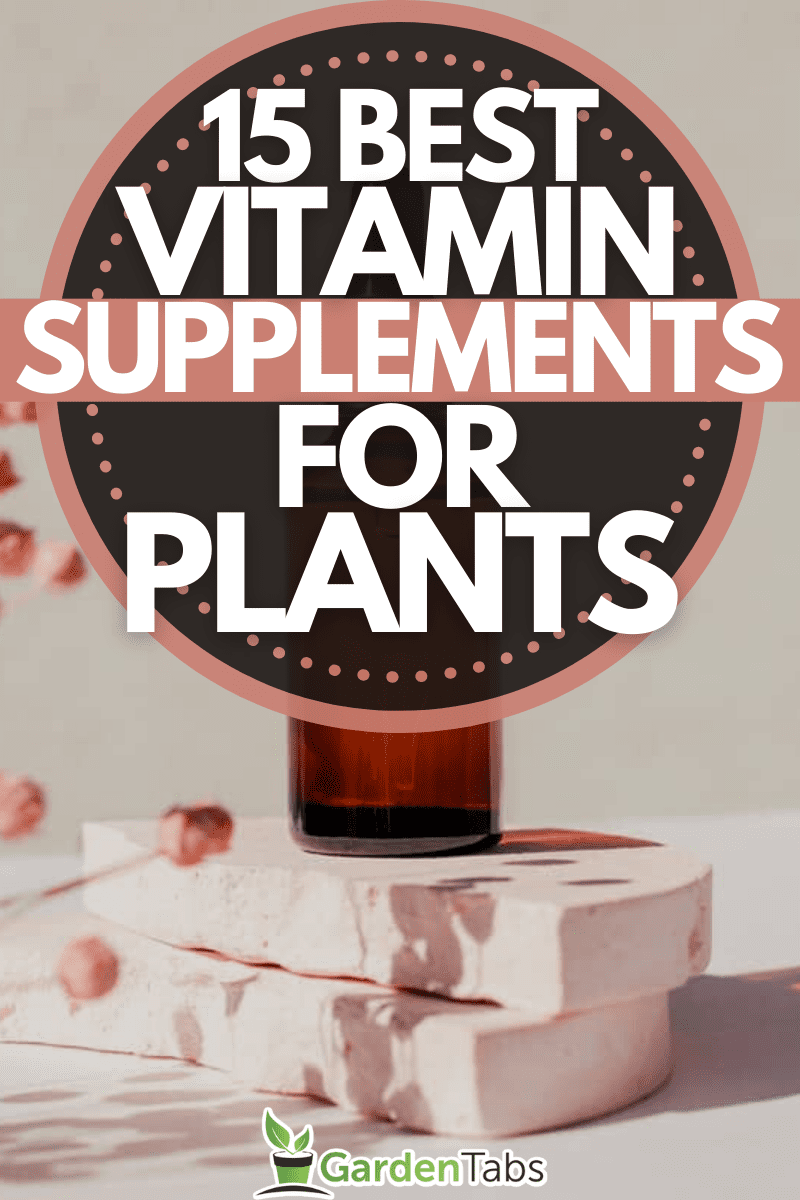
15 Best Vitamin Supplements For Plants
Plants need supplements to support their growth and health. With that said, we have listed some vitamin supplements for your plants below:
1. N-Primer Nitrogen Supplement
This supplement has a balanced source of negative and positive charge nitrogen that helps increase growth and darken the leaves. Nitrogen is essential to growing plants.
N-Primer Nitrogen Supplement is best to apply during early bloom.
See these nitrogen supplements on Amazon,
2. Signal Terpene Enhancer Plant Nutrient and Supplement
This supplement increases the plant's metabolism and helps to bloom faster. It is safe to use as a flushing agent and binds excess salt.
Terpene enhancer is best to apply during the last 2 to 4 weeks of the bloom cycle.
Click here to check Terpene Enhancer on Amazon.
3. LawnStar Liquid Iron
LawnStar Liquid Iron restores the deep green vibrancy of leaves.
It also promotes a stable foundation and vigorous root development. Iron is a nutrient that is important for vital functions such as chlorophyll production, metabolism, and fixing nitrogen.
View this Liquid Iron on Amazon.
4. Botanicare Cal-Mag Plus
Botanicare Cal-Mag Plus is rich in calcium, magnesium, and iron. These three nutrients are essential to correct deficiencies. It is easy to use; mix it well in watering your plant.
This product has an NPK of 2-0-0 ratio. NPK represents the value of three nutrients: Nitrogen, Phosphorous, and Potassium. These nutrients are essential for the growth of the leaves and roots and to function correctly.


Click here to view Cal-Mag Plus on Amazon.
5. SUPERthrive Liquid Vitamin Solution
This vitamin solution enhances root development and restores strength. It also reduces shock from transplanting. SUPERthrive is non-toxic to plants. You can add this liquid vitamin solution to fertilizer for growth.


Click here to check Liquid Vitamin Solution on Amazon.
6. Bloom Bud Builder & Flower Hardener
This plant nutrient and supplement stimulate fast flowering and bud growth. The TPS's Bloom Formula helps increase the flower hardness and density.
This supplement has Trichoderma, which increases rapid growth.
Click here to see this flower hardener on Amazon.
7. Flower Fuel Bloom Booster
Flower Fuel is a soluble bloom fertilizer that helps to achieve a denser and larger harvest. It is simple to apply. Add 1/4 teaspoon of Flower Fuel to every 1 gallon of water and use it in watering your plants.


Click here to view Flower Fuel on Amazon.
8. Houseplant Resource Center Root Supplement
This supplement is best for fiddle leaf fig plants. It will help boost the plant's immunity and strengthen the root system. The formulation is gentle and effecting, perfect for all house plants.


Click here to see this supplement on Amazon.
9. Fiddle Leaf Fig Tree Plant Food
Fiddle Leaf Fig Tree Plant Food made for Ficus Lyrata and Ficus Audrey, fortified with calcium, 3-1-2 NPK (Nitrogen, Phosphorous, and Potassium), and Urea-free. This supplement provides essential nutrients for health, growth, and a vigorous root system. It is easy to apply, no need to mix other fertilizers.


10. Liquinox 0-2-0 Vitamin B-1
This supplement is formulated to stimulate root growth and reduce transplanting shock.
The active ingredients are Chelated Iron, Phosphate, Ferric Edta, and Phosphoric Acid. Lightly apply frequently for a healthy root structure.


View this vitamin B-1 on Amazon.
11. Quick Clone Gel
Quick Clone Gel is ideal for cloning your fastest-growing plants. This product is perfect for all plants like roses, orchids, cactus, bonsai, peppers, bamboo, and many more.
This cloning gel is organic and made from naturally brewed tea.


Click here to see Clone Gerl on Amazon.
12. Miracle-Gro All Purpose Water Soluble Plant Food
This plant food helps the plant to grow bigger. Its size becomes twice that of unfed plants. Miracle-Gro Plant Food contains nutrients that are essential for faster growth.
Easy to apply; feed every 7 to 14 days to active-growing plants.

13. General Hydroponics CALiMAGic
CaliMAGic has a concentrated blend of calcium and magnesium. Prevents deficiencies in calcium-rigorous plants such as lettuce and tomatoes.
It also helps ward off the blossom-end rot of plants. It contains 1-0-0 of NPK.

Click here to view CALiMAGic on Amazon.
14. Humboldt Secret Calcium, Magnesium, and Iron Supplement
Plants sometimes suffer from deficiencies, and they need a supplement to correct the scarcity of nutrients.
This supplement is a good source of calcium, chelated iron, and magnesium that helps to correct common nutrient deficiencies.
Suitable for soil, container, and hydroponic, it ensures healthy and strong plants.
View this supplement on Amazon.
15. Southern Ag Chelated Iron
Southern Ag Chelated Iron corrects an iron deficiency in vegetables, fruits, flowers, and trees. You can also use this in lawns to have a rich, deep green color. Mix it with water and drench spray on plants.


Check out this chelated iron on Amazon.
Does Your Plant Need Vitamins?
Plants need a variety of nutrients, and each plant requires a different amount. Researching the plant type in your garden or household is essential to know the specific nutrients they need.
Some vitamins are essential to plants, but most nutrients they should have are enough nitrogen, phosphorus, and potassium.
Some studies show that vitamin C helps in photosynthesis, vitamin B gives strength, and vitamin E makes plants resistant to cold.
Can You Feed Plants With Human Vitamins?
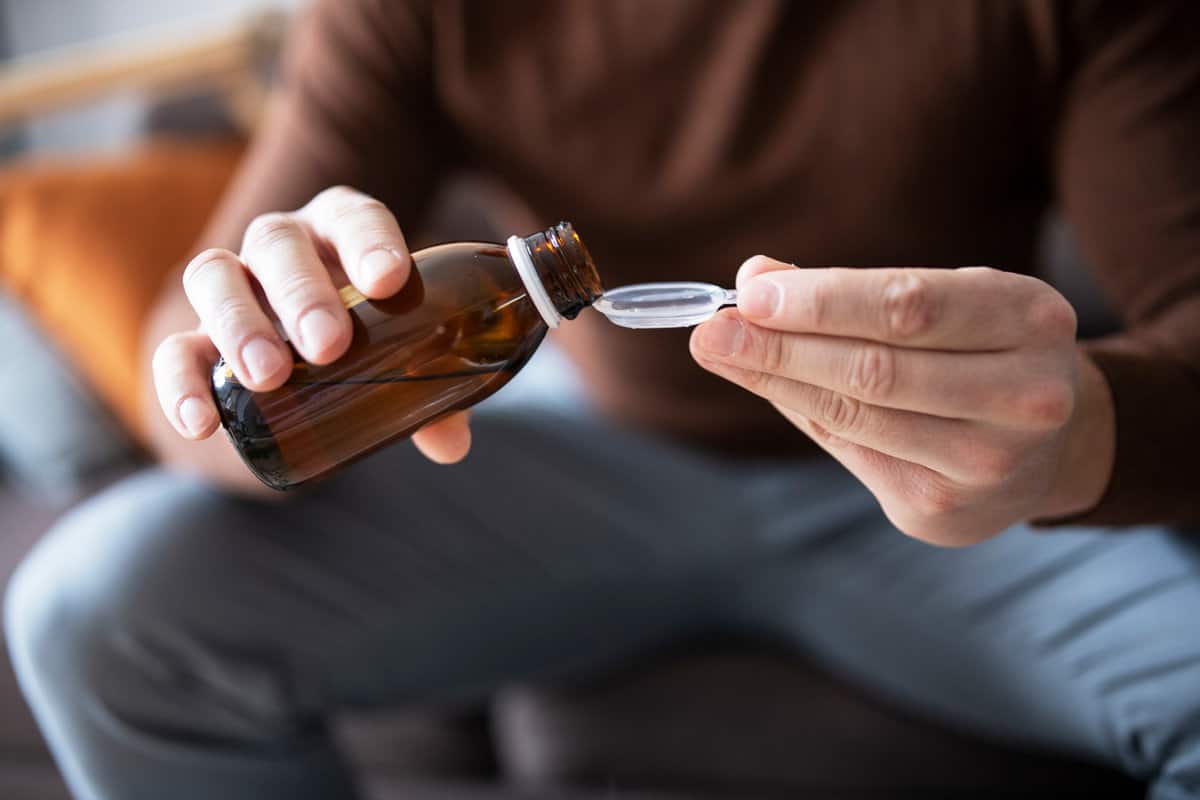
According to some research, even expired vitamins and supplements can be used in the garden. Dilute them in water to feed the plants. Listed are some of the vitamins you can use in your garden.
- Vitamin B1 helps stimulate flower and root growth.
- Calcium supports a healthier root system.
- Vitamin B12 provides nutrients for healthy leaves.
- Vitamin C manages cell growth and its division.
- Zinc Sulphate Monohydrate helps in the process of photosynthesis.
- Folic Acid provides green, fuller foliage.
- Nicotinamide supports the overall growth of plants.
- Vitamin D3 speeds up and enhances the formation of the roots.
How Do You Feed Plants With Expired Vitamins?
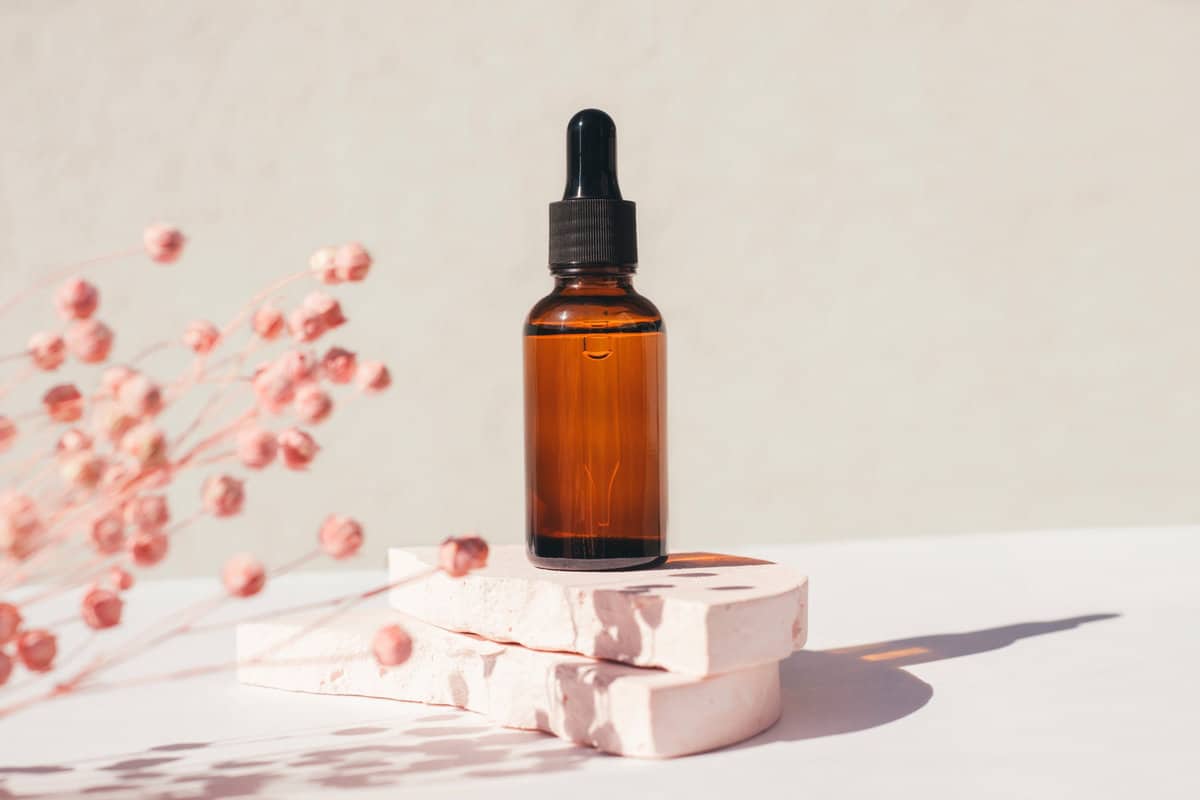
Instead of throwing expired vitamins, you can add them as fertilizer for your plants.
- You can put expired vitamins in your compost and apply them to your plants. You can also add Folic Acid and Vitamin C that help seedling production.
- You can mix expired multivitamins in distilled water to water your plants. You can do this process once a month.
What Expired Supplements Can You Use On Plants?
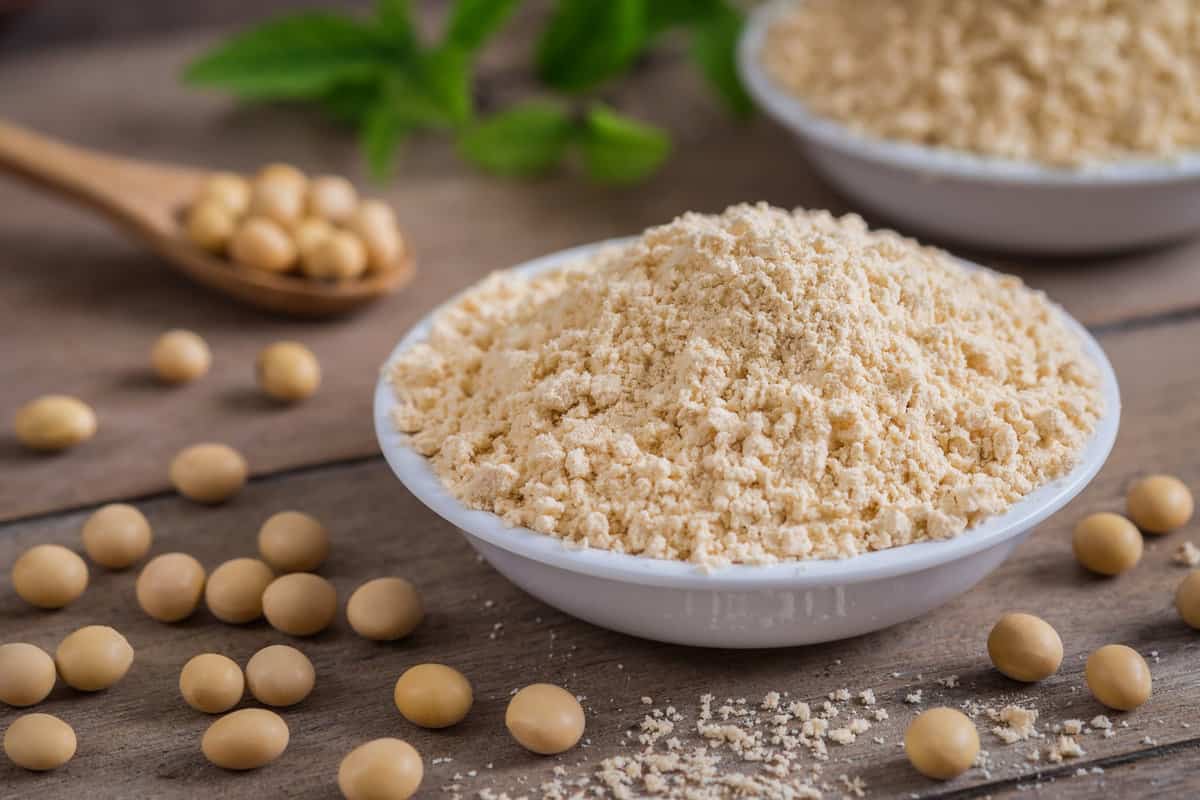
Expired supplements are also safe for plants. These are some supplements that you can use:
Soy
Soy has proteins, iron, fiber, copper, manganese, and phosphorus that plants need for growth. Dilute a scoop of expired soy supplements in 1 gallon of water.
Whey
Whey is rich in milk which can support plant growth. It provides essential nutrients such as potassium, calcium, nitrogen, magnesium, and phosphorus. It is also acidic, which is perfect for acid-loving plants.
How Often Should You Give Plants Extra Nutrients?
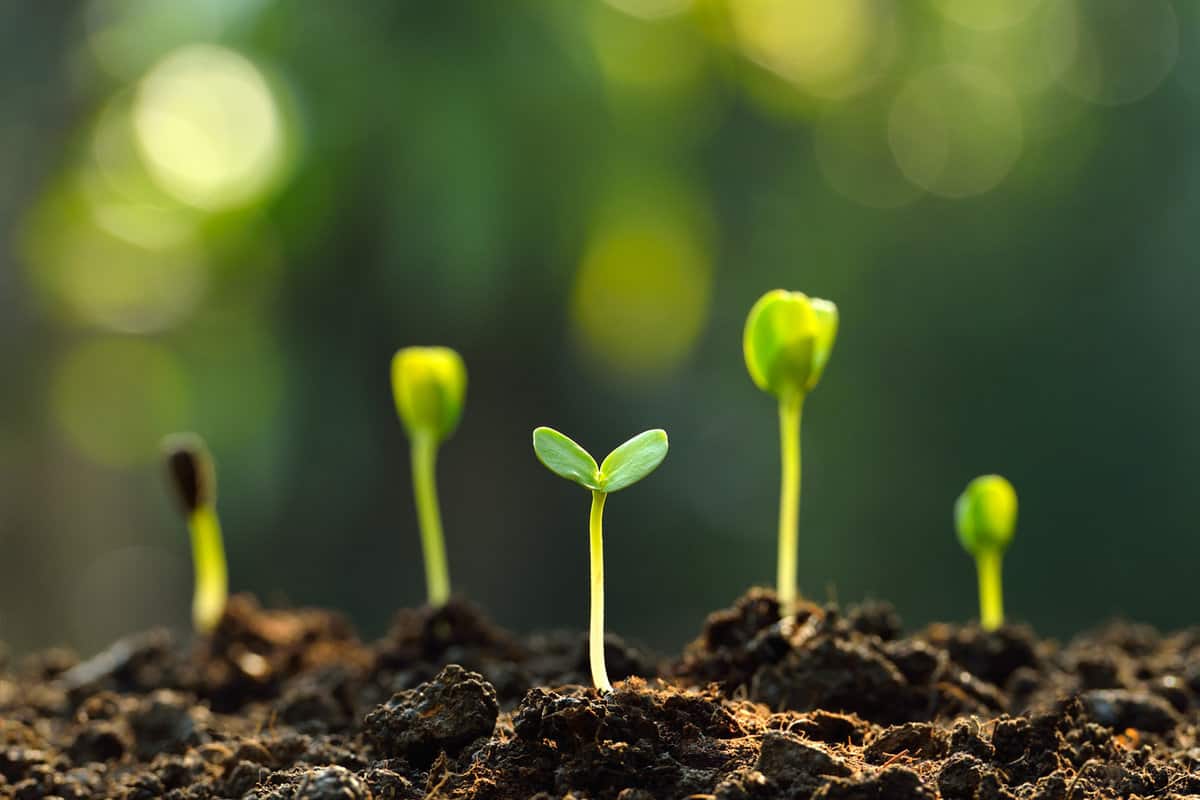
The effective way to know when you should feed your plants and how often is to check the packaging of the fertilizer or food plant brand you bought.
The nutrient chart should be there and will tell you if you should feed your plant every time you water them or once to twice a week. You should also check the nutritional needs of the plant types to ensure you are giving the right nutrient amount.
Summary
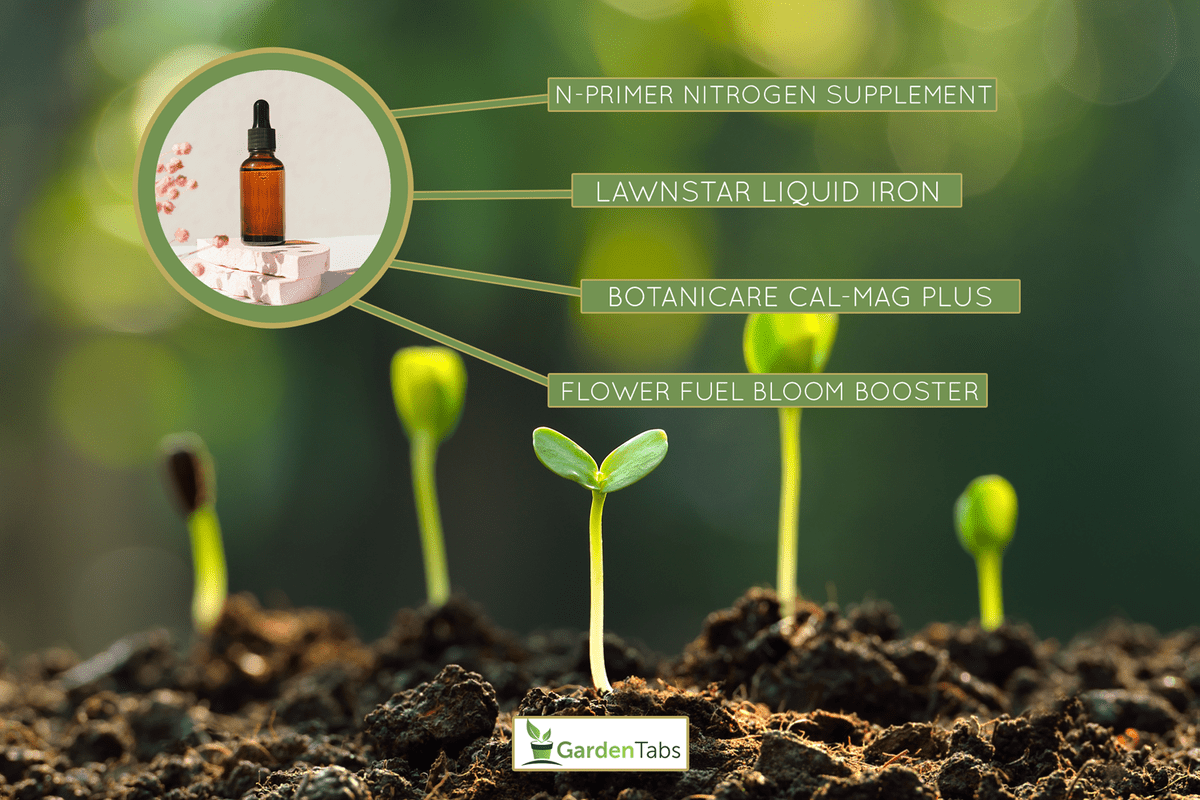
Giving vitamin supplements to your plants will help them grow, be strong, and be resilient to harsh environments. Knowing the type of plants you have and the nutrients they need would help to solve your plants' deficiencies. Researching and asking experts will also help to determine the cause of the problem.
Want to check out more garden articles? Here are some below:
Can You Dissolve Fertilizer In Water?
